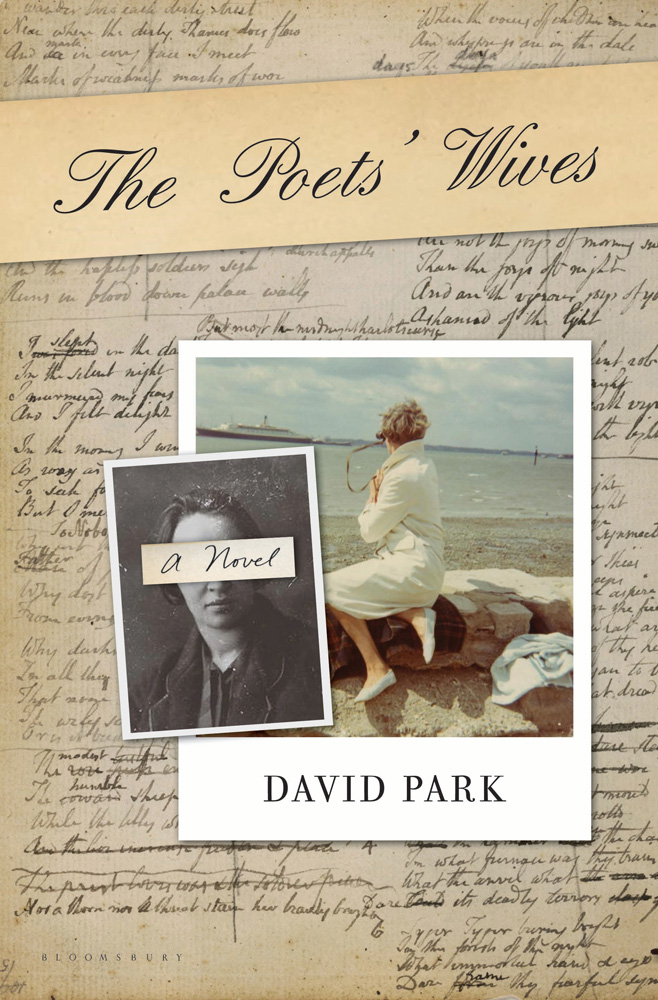
The Poets' Wives
A Novel
کتاب های مرتبط
- اطلاعات
- نقد و بررسی
- دیدگاه کاربران
نقد و بررسی

November 11, 2013
Park’s ninth book (after The Light of Amsterdam) is divided into three novella-like sections, each focusing on the wife of a poet. In the first section, William Blake’s wife Catherine laments her poverty and the woes of living with a brilliant man who isn’t granted the recognition he’s due. Set in Russia of the 1930s, ’40s, and ’50s, the second section tracks the harrowing, fear-filled life of Nadezhda Mandelstam after her husband, Osip, dies in a Soviet internment camp. On the move, Nadezhda commits Osip’s poems to memory in an effort to preserve them for future generations. The third section, which is the most intriguing and most plot-driven, focuses on Lydia, the fictional wife of a fictional Irish poet who demands that his family scatter his ashes after he dies. Lydia’s daughters offer their support, but try to understand why she stayed with such an adulterous and cold man. The first two sections are frustrating, and the use of present tense and skipping around in time detract from the power of the narrative and its sensory detail. Though offering a promising premise, this novel lacks depth and provides little payoff.

March 15, 2014
In parallel but unconnected narratives, Irish novelist Park (The Light of Amsterdam, 2012, etc.) portrays the inner lives of three women--two historic, one fictional--who have devoted themselves to their difficult husbands' creative needs and ambitions. The women's stories follow the same pattern of early passion evolving into long years of travail and sacrifice. Aging widow Catherine Blake remembers her life with prophetic poet William Blake: his yearlong courtship filled with letters she was too illiterate to read; their romantic early marriage; a miscarriage followed by the threat of Blake's passion for another woman (a not historically proven event); their three-year stay in Sussex, Blake inspired by seeing a tiger and a comet. Catherine revels in being William's student, his assistant and his succor against a public that thought him more madman than genius. Unlike Blake, Osip Mandelstam was recognized as a genius in his lifetime, but writing poetry in Stalinist Russia was a political act, and his words were considered inflammatory. In 1939, Osip's wife, Nadezhda, waits in line to send the exiled Osip a package before her story bounces forward and backward in time to earlier exiles and tribulations the couple shared and to the future in which Nadezhda must survive alone while preserving Osip's banned writing. Like Catherine Blake, the childless Nadezhda dedicates her life to supporting her husband's genius, acting as his scribe and suffering his infidelities as minor irritants. Fictional Lydia is the new widow of Don, a contemporary Irish poet who never achieved greatness before his fatal heart attack at their seaside cottage. Unhappily married for years, Lydia remains ambivalent toward Don as husband and poet. He was a womanizer and an uninvolved, resentful father to their son and two daughters. Now Lydia gathers with her adult daughters to spread Don's ashes and deal with the maternal grief she had never been able to articulate over her son, who died years before. The language is gorgeous, the tone exquisitely highbrow, but the result is disappointingly dull.
COPYRIGHT(2014) Kirkus Reviews, ALL RIGHTS RESERVED.

January 1, 2014
The wives of famous men have a hard time of it--especially, it seems, the wives of famous poets, who must not only cater to and cosset their husbands during their creative lives but maintain that loyalty beyond death. Such is the case for the wives of William Blake, Osip Mandelstam, and a third, fictitious Irish poet, featured here by three-time McCrea Literary Award winner Park. All three widows remain protective despite their husbands' various infidelities and persecutions. Catherine Blake, suffering from a miscarriage and jealous of the young street girl brought in to help her, endures Blake's depression, insecurities, and trial for treason. Nadezhda Mandelstam commits to memory Osip's entire oeuvre after his arrests and torture for counterrevolutionary writing in the Stalinist Soviet Union. As Lydia, the third wife and a recent widow, spends an evening awaiting the arrival of her daughters, she sifts through her husband's final poems, which reveal more about him than she cares to know. VERDICT Linked by their endurance and the determination to safeguard their husbands' legacies, these three women are as worthy of appreciation and admiration as their poet husbands. Strongly recommended.--Barbara Love, Kingston Frontenac P.L., Ont.
Copyright 2014 Library Journal, LLC Used with permission.

February 1, 2014
They served as occasional muses and, more important, as keepers of their husbands' legacies. The wives of three poetsWilliam Blake, Osip Mandelstam, and a fictitious contemporary Irish poetmanaged home lives, handled finances (of little concern to the poets), and dealt, in one way or another, with the other women in their husbands' lives. Catherine Blake's marriage in the eighteenth century was altered and threatened after she miscarried, yet she tried to cosset William as he declined into madness. After Mandelstam was charged with counter revolutionary activity in twentieth-century Russia, his wife, Nadezhda, lived in fear and poverty, desperately committing his poetry to memory. Lydia, wife of a womanizing poet in present-day Ireland, has the consolation of two adult daughters to counter the earlier loss of her son as she contends with her husband's controlling manner from beyond the grave. While Park (Light of Amsterdam, 2012) focuses on these three wives committed to their marriages and their husbands' work, he also shows some of the inspiration that fuels the poetry. An insightful and moving exploration of love and art.(Reprinted with permission of Booklist, copyright 2014, American Library Association.)

























دیدگاه کاربران